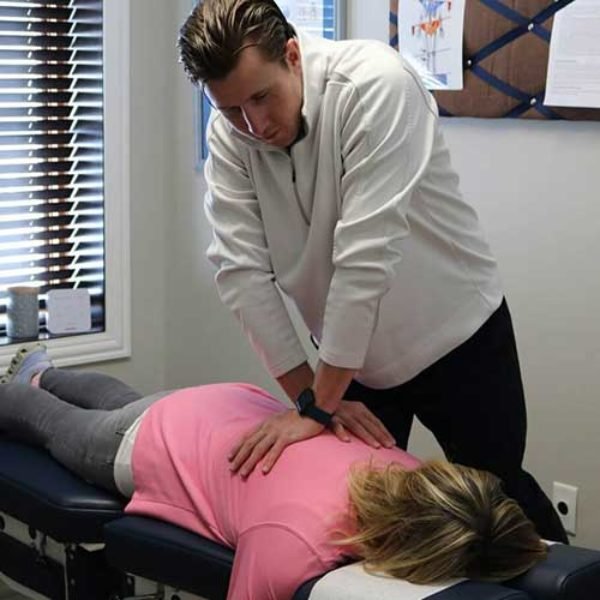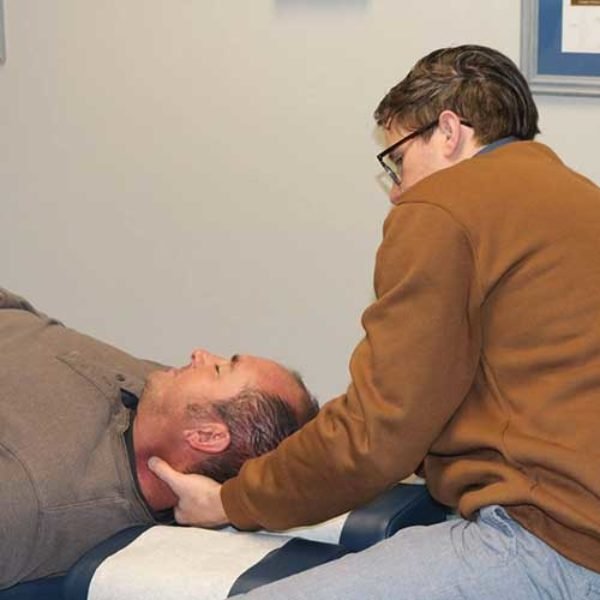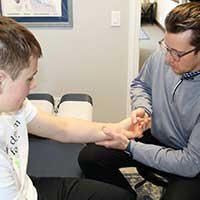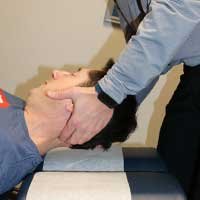Chiropractor for Failed Back Surgery
Chiropractic care can be an effective option for managing pain after failed back surgery. Failed back surgery syndrome (FBSS) can leave patients with persistent pain and limited mobility. Chiropractic treatments focus on pain management for failed back surgery syndrome through non-invasive methods, aiming to improve quality of life and reduce discomfort. Adding chiropractic care as part of a failed back surgery syndrome treatment plan can address issues and help with healing.
What Is Failed Back Surgery Syndrome?
Failed back surgery syndrome (FBSS) refers to persistent or recurring pain following spinal surgery, such as failed tie back surgery. Despite surgical intervention, patients may continue to experience significant discomfort and limited mobility. This condition can result from various factors, including incomplete healing, scar tissue formation, or misdiagnosed conditions. In such cases, a well-rounded, professional FBSS treatment plan may be the only solution for patients to achieve better outcomes and improve their quality of life. Chiropractic care, physical therapy, and pain management strategies can all be important parts of the treatment plan aimed at easing symptoms. These therapies aim to reduce pain, improve function and your overall well-being, offering hope and relief for people suffering from FBSS.
Causes of Failed Surgery
Failed back surgery syndrome (FBSS) occurs when spinal surgery does not achieve the expected pain relief or results in new pain. Here are some common failed back syndrome causes:
- Incomplete Diagnosis. The original cause of pain may not have been fully identified or correctly diagnosed before surgery.
- Surgical Complications. Issues such as nerve damage, infections, or improper placement of surgical hardware can lead to FBSS.
- Scar Tissue Formation. Post-surgical scar tissue can impinge on nerves, causing pain.
- Persistent Degenerative Conditions. Ongoing degenerative changes in the spine, such as arthritis or disc degeneration, can continue to cause pain.
- Recurrent Herniation. The operated disc may herniate again, leading to recurrent pain.
Understanding these failed back syndrome causes helps in developing more effective treatment plans.
Possible Treatment Options for FBSS
Treating failed back surgery syndrome (FBSS) is important because persistent pain can significantly impact quality of life. There are several effective failed back surgery syndrome treatment options, each offering benefits. Treatments range from physical therapy, chiropractic care, and medication management to more advanced interventions like spinal cord stimulation and nerve blocks.
It’s important to understand that failed back surgery syndrome symptoms vary widely, and what eases pain for one person might not be effective for another. A personal approach is what matters, often involving a combination of therapies to achieve the best outcomes.
Chiropractic Care
A chiropractor for failed back surgery focuses on non-invasive methods to manage pain and improve spinal function. These methods include spinal adjustments, physical therapy, and other manual techniques designed to reduce inflammation, ease pressure on nerves, and enhance mobility. By addressing the causes of pain and helping natural healing, chiropractic care offers a holistic way to manage FBSS symptoms. Though, it is very important to find a qualified chiropractor.
Spinal Decompression
Spinal decompression is a non-surgical therapy designed to ease pressure on the spine’s discs and nerves. This treatment involves gently stretching the spine using a traction table or a similar motorized device. The goal is to create negative pressure within the discs, promoting the retraction of herniated or bulging discs and helping nutrient flow to support healing.
Proper at Home Therapy
Proper at-home therapy can help manage pain and improve recovery. Simple techniques include gentle stretching and strengthening exercises. Applying heat or cold packs can reduce inflammation and discomfort. Practicing good posture and ergonomics during daily activities is also important. Regular movement may help avoid stiffness. Always consult with a healthcare provider before starting any new at-home therapy.

The Basis of Good Chiropractic Care After Failed Spinal Surgery
Good chiropractic care after failed spinal surgery focuses on addressing persistent pain and improving mobility. The basis of this care includes a careful assessment to understand the specific issues caused by the failed surgery. Treatment for failed back surgery syndrome often includes spinal adjustments to ease pressure on nerves and improve spinal alignment.
Chiropractors may also use therapies like spinal decompression, which gently stretches the spine to reduce disc pressure and promote healing. Complementary treatments such as physical therapy exercises, massage, and acupuncture might also be included to reduce inflammation and help with overall recovery. The goal is to develop a personalized plan that targets the root causes of pain, enhances function, and improves the patient’s quality of life. Regular follow-up and adjustments are also important as they ensure the treatment remains effective and adaptable.
Benefits of Chiropractic Care
Chiropractic care is one of the best alternative treatments for failed back surgery syndrome (FBSS). Here’s why::
- Pain Relief. Through spinal adjustments and manipulations, chiropractors can ease pressure on nerves, reducing pain and discomfort.
- Better Mobility. Regular chiropractic treatments can enhance flexibility and range of motion
- Holistic Approach. Chiropractors often add other therapies, such as massage, physical therapy, and lifestyle advice, to better support your overall health and well-being.
- Drug-Free Treatment. Chiropractic care provides a natural alternative to medications, which can have side effects and potential dependency issues.
- Personalized Care. Treatments are crafted to fit the individual’s specific needs, addressing the unique causes of pain and dysfunction.
By using chiropractic care, patients with FBSS can find an effective approach to managing their symptoms.
Failed Back Surgery Syndrome Treatment at Cross-Up Chiropractic
Choosing Cross-Up Chiropractic for failed back surgery syndrome (FBSS) treatment is a wise decision. Our chiropractic clinic provides a well-rounded approach to managing FBSS, focusing on non-invasive techniques to ease pain and improve spinal function. Our experienced chiropractor in Libertyville crafts treatment plans to each patient’s specific needs.
At Cross-Up Chiropractic, FBSS treatment typically includes spinal adjustments, physical therapy, and complementary therapies such as massage and acupuncture. These methods aim to reduce inflammation, enhance mobility, and help with healing. Additionally, our expertise in treating various conditions means we can also address related issues, such as hip pain, offering a chiropractor for hip pain as part of our services.
You may also expect a supportive and professional environment, making Cross-Up Chiropractic a reliable choice for managing FBSS and improving quality of life.
Chiropractor – Reviews
Why People Choose our Chiropractors?
Because it’s not about us, it’s about you. We are always looking for your feedback during care because success requires teamwork. You do all the healing, we just have some cool tools and gifted hands to speed it up!

Trusted & Honest Chiropractors

Innovative Chiropractic Treatments

Personalized Care
“Our focus is on finding and fixing the underlying problem – not just masking it.”
Chiropractor for Failed Back Surgery
– Frequently Asked Questions (FAQ)
Is chiropractic treatment safe for failed back surgery?
Chiropractic treatment can be a safe and effective option for managing symptoms of failed back surgery syndrome. Chiropractors use non-invasive techniques to alleviate pain and improve function. However, it’s essential to consult with a qualified chiropractor who can evaluate your specific condition and tailor the treatment to your needs.
What lifestyle changes or home exercises can support chiropractic treatment for failed back syndrome?
Supporting chiropractic treatment with lifestyle changes and home exercises can enhance recovery and manage symptoms of failed back syndrome. These may include maintaining a healthy weight, practicing good posture, staying active with low-impact exercises, and incorporating specific stretches to improve flexibility and strength.
How long does it take for a chiropractor to treat failed back syndrome?
The duration of chiropractic treatment for failed back syndrome varies depending on the severity of the condition, the patient’s overall health, and their response to treatment. Some patients may experience relief after a few sessions, while others may require ongoing care over several months. A chiropractor will tailor the treatment to each patient’s specific needs, including adjustments, exercises, and lifestyle advice, to achieve the best possible results. Regular assessments are typically conducted to monitor progress and adjust the treatment plan as needed.
What does a chiropractor do for failed back syndrome?
For failed back syndrome, a chiropractor may use a combination of spinal adjustments, manual therapy, and other non-invasive techniques to reduce pain and improve mobility. They may also recommend lifestyle modifications, exercises, and ergonomic advice to support recovery and prevent further complications. The goal is to enhance the function and quality of life for patients dealing with this condition.
Conditions We Treat With Chiropractic
CHIROPRACTORS FOR FAMILY CARE AND SPORTS MEDICINE
Chiropractic + Rehab
Additional Services We Offer
It is our goal to provide you with the highest quality of care and a successful experience. Our family taking care of yours!
Contact Us
We value trust and honesty at Cross-Up Chiropractic and strive to provide all of our patients with the best health care experience. Please feel free to ask us any questions, so that we may comfort your mind and accommodate your needs.








